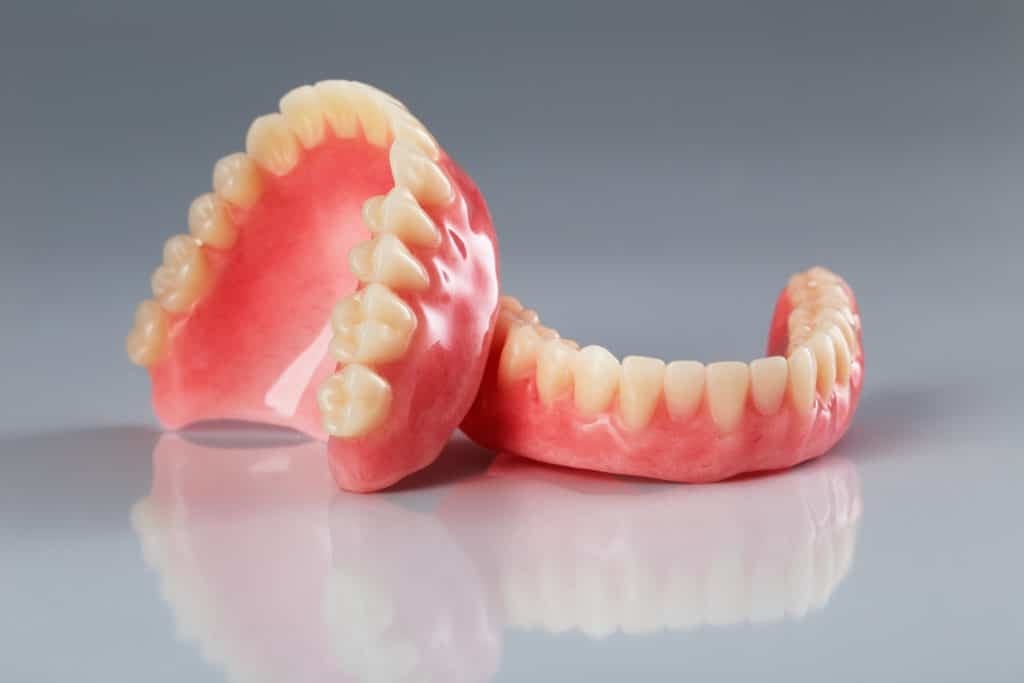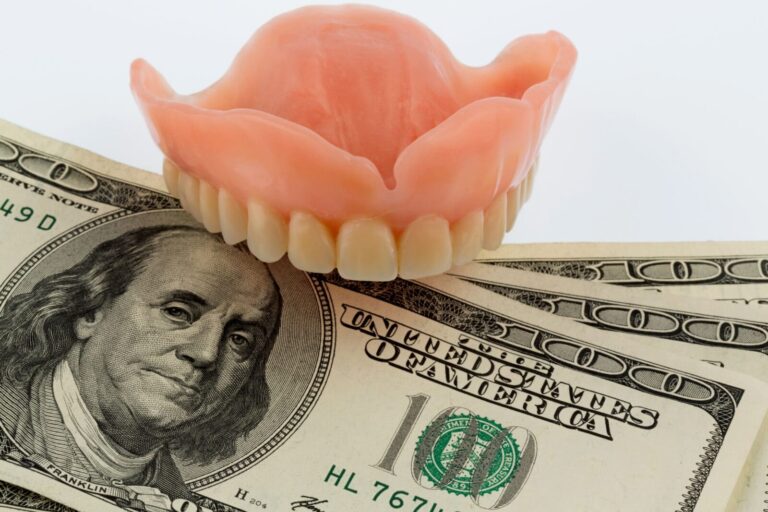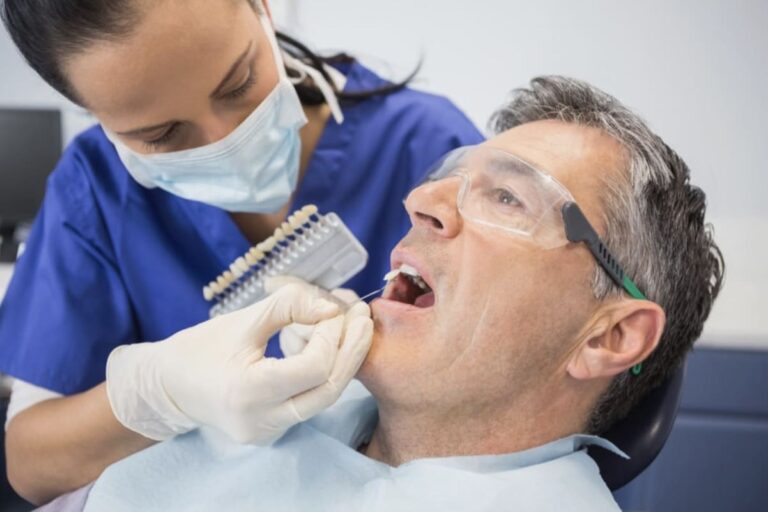What are dentures made of? Let’s review the history.
Arguably the most famous denture wearer of all time is George Washington. Pretty much every kid in the US grew up learning about him and his wooden teeth.
Turns out though that is just a myth. Ol’ George never had wooden teeth. Though having teeth made of wood may seem more normal that what his dentures were actually made out of.
According to a story written by John Smith Jr in the Journal of the American Revolution…
“Washington’s dentures over the course of his lifetime used materials like human teeth along with bone and ivory from hippopotamus, or “sea horse” as it was called in its day. Ivory from walrus and elephant may also have been used, along with lead, gold metal wire and springs, and brass screws.”
Yikes! Thing I’d prefer to go with missing teeth than have a mouth full of lead or hippo tusks.
In any case, if you’re looking to get dentures in 2018, thankfully you don’t have to worry about that. Dentures these days are made with safer and more realistic looking materials.
Acrylic Resin Dentures
Many dentures made today are made of plastic. Or, to get fancier, acrylic resins. These are a popular choice because they tend to be wear-resistant and can last for 5 years or more.
Porcelain Dentures
Another common material that dentures are made out of is porcelain. Porcelain is a harder material than resin. So porcelain dentures tend to be more resistant to wear. However, porcelain dentures are more likely to chip or crack over time than their acrylic cousins.
Keeping your dentures clean also differs between porcelain and acrylic dentures. For porcelain dentures, because they are more likely to chip or crack, requires more care when cleaning. It’s recommended to keep them over a soft surface like a towel or a sink full of water to reduce the risk of damage.
For acrylic teeth, they are relatively stain resistant. However, the do have teeny tiny pits that can have bacteria in them. This bacteria can cause bad breath or infection. To keep the nasty bacteria away, it’s recommended that you soak them overnight to keep them clean.
Those are some of the main differences between porcelain and acrylic dentures. To learn more about them and get help deciding which material may make the most sense for you, visit a local cosmetic dentist in your area.
And, remember, whichever material you choose for your dentures, you’ll be WAY better off than George Washington and his mouth full of lead and hippo tusks!




